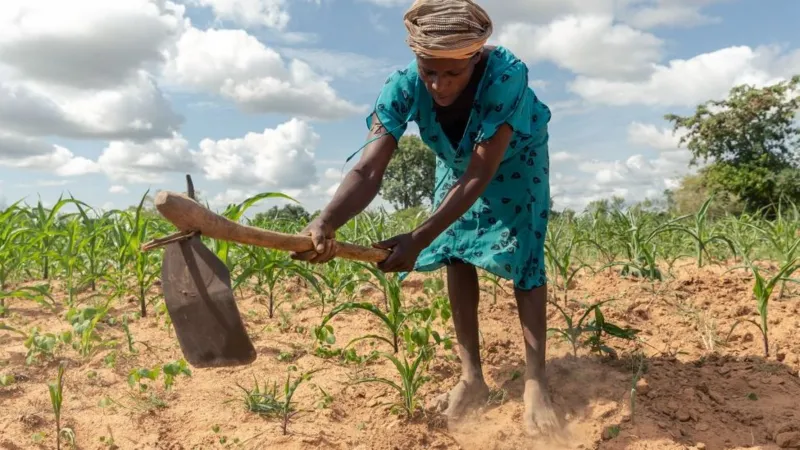Zimbabwe’s President Mnangagwa Acknowledges Drought, Declares National Disaster
Zimbabwean President Emmerson Mnangagwa has declared a national disaster in response to the prolonged drought crisis gripping the nation. Mnangagwa announced on Wednesday that Zimbabwe requires $2 billion (£1.6 billion) to address the hunger crisis triggered by scant rainfall, which has decimated nearly half of the maize crop. The scarcity of grain has led to a surge in food prices, leaving approximately 2.7 million people at risk of starvation.
The situation in Zimbabwe reflects a broader trend across southern Africa, with neighboring countries Zambia and Malawi also declaring states of disaster due to the drought. Concerns abound that this drought may become one of the most severe in decades. According to the World Food Programme, 13.6 million individuals in the region are currently grappling with crisis-level food insecurity.
President Mnangagwa emphasized that ensuring food security for all Zimbabweans is a top priority, asserting, “No Zimbabwean must succumb to or die from hunger.” However, Zimbabwe faces additional challenges, including high inflation driven by escalating food prices. The country now joins neighboring nations in the race to secure an adequate maize supply from the international market.
The impact of the drought extends beyond food scarcity, affecting electricity production as well. Zimbabwe relies heavily on hydroelectric power, and the lack of rainfall has hindered electricity generation. Once considered the breadbasket of southern Africa, Zimbabwe has experienced recurrent episodes of severe drought in recent years, negatively impacting both crops and livestock.
While not all droughts can be attributed to climate change, the escalating temperatures associated with climate change exacerbate drought conditions by drawing moisture from the soil. The global average temperature has already risen by approximately 1.2°C since the onset of the industrial era, with further increases projected unless significant emissions reductions are implemented by governments worldwide.
The recurring droughts in Zimbabwe underscore the urgent need for comprehensive strategies to mitigate the impacts of climate change and ensure food security for vulnerable populations. As Zimbabwe grapples with this latest crisis, the international community faces a collective imperative to address the underlying factors driving climate change and its devastating consequences.


















